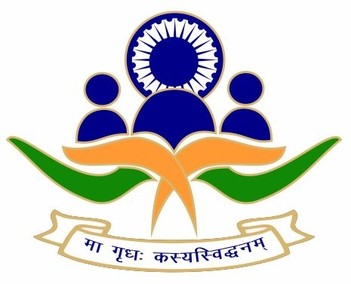Lokpal

- 26 Feb 2025
Context:
In February 2025, the Supreme Court of India stayed a controversial order issued by the Lokpal, which had attempted to bring High Court judges within its jurisdiction by categorizing them as "public servants" under the Lokpal and Lokayuktas Act, 2013. The apex court termed the Lokpal’s interpretation as “very disturbing” and in contradiction with settled constitutional principles.
Understanding the Lokpal and Its Jurisdiction
Origin and Legal Framework:
- Concept Origin: The term "Lokpal" was coined by Dr. L.M. Singhvi in 1963. The concept was originally inspired by the Swedish institution of the Ombudsman (1809).
- Legislative Foundation: The Lokpal and Lokayuktas Act, 2013 was passed following public pressure during the Anna Hazare-led India Against Corruption movement.
- Purpose: To act as an independent anti-corruption body with jurisdiction over high-ranking public officials.
Structure and Jurisdiction:
- Composition:Lokpal comprises a Chairperson and up to 8 members (50% must be judicial).
- Selection Committee: Includes the Prime Minister, Speaker of Lok Sabha, Leader of Opposition, Chief Justice of India, and an eminent jurist.
- Jurisdiction (Section 14):
- Prime Minister (with exceptions related to national security, international relations, etc.)
- Union Ministers and Members of Parliament
- Government servants (Group A-D)
- Chairpersons, officers of public entities, and NGOs receiving foreign contributions over ?10 lakh annually
The Controversy: Inclusion of High Court Judges
The Lokpal recently issued an order stating that High Court judges qualify as public servants under the Lokpal Act. The reasoning was based on historical foundations:
- Lokpal’s Argument:
- High Courts were established under British-era laws like the Indian High Courts Act, 1861.
- Article 214 of the Constitution merely recognizes these courts rather than creating them.
- Therefore, High Court judges should fall under Lokpal’s purview, unlike Supreme Court judges who are appointed under Article 124.
Supreme Court’s Response and Constitutional Position
The Supreme Court overruled Lokpal’s interpretation, citing constitutional provisions and established legal precedent:
- Appointment under the Constitution:
- High Court judges are appointed under Article 217 of the Constitution.
- Supreme Court judges are appointed under Article 124.
- Both are constitutional functionaries and hence outside the jurisdiction of Lokpal, which is a statutory body.
- 1991 K. Veeraswami Judgment (Five-Judge Bench):
- Unanimously held that judges are public servants, but no criminal case can be registered against them without prior consultation with the Chief Justice of India (CJI).
- Even if the CJI is the accused, the consultation must occur with other senior SC judges.
- Emphasized judicial independence and the need for protection against frivolous or motivated inquiries.
- Judicial Integrity vs Public Scrutiny:
- While corruption among judges is not immune to scrutiny, the procedure must ensure judicial independence, prevent erosion of public trust, and protect honest judges from harassment.
Critical Analysis: Lokpal's Overreach and Constitutional Boundaries
- Violation of Doctrine of Separation of Powers:The Lokpal's attempt to extend its reach to constitutional judges infringes on the independence of the judiciary, a basic feature of the Constitution.
- Constitutional Supremacy vs Statutory Authority:The Lokpal, being a creation of Parliament, cannot override the constitutional safeguards provided to judges under Articles 124 and 217.
- Judicial Precedent Binding on Statutory Bodies:Ignoring the K. Veeraswami judgment not only undermines legal precedent but also reflects a lack of institutional discipline.
Conclusion
The recent conflict between the Lokpal and the Supreme Court over jurisdictional boundaries highlights the delicate balance between ensuring accountability and preserving judicial independence. While combating corruption remains vital, procedural safeguards and constitutional norms must guide such actions. The episode reiterates the importance of institutional clarity, inter-agency respect, and adherence to constitutional principles in India's democratic framework.
